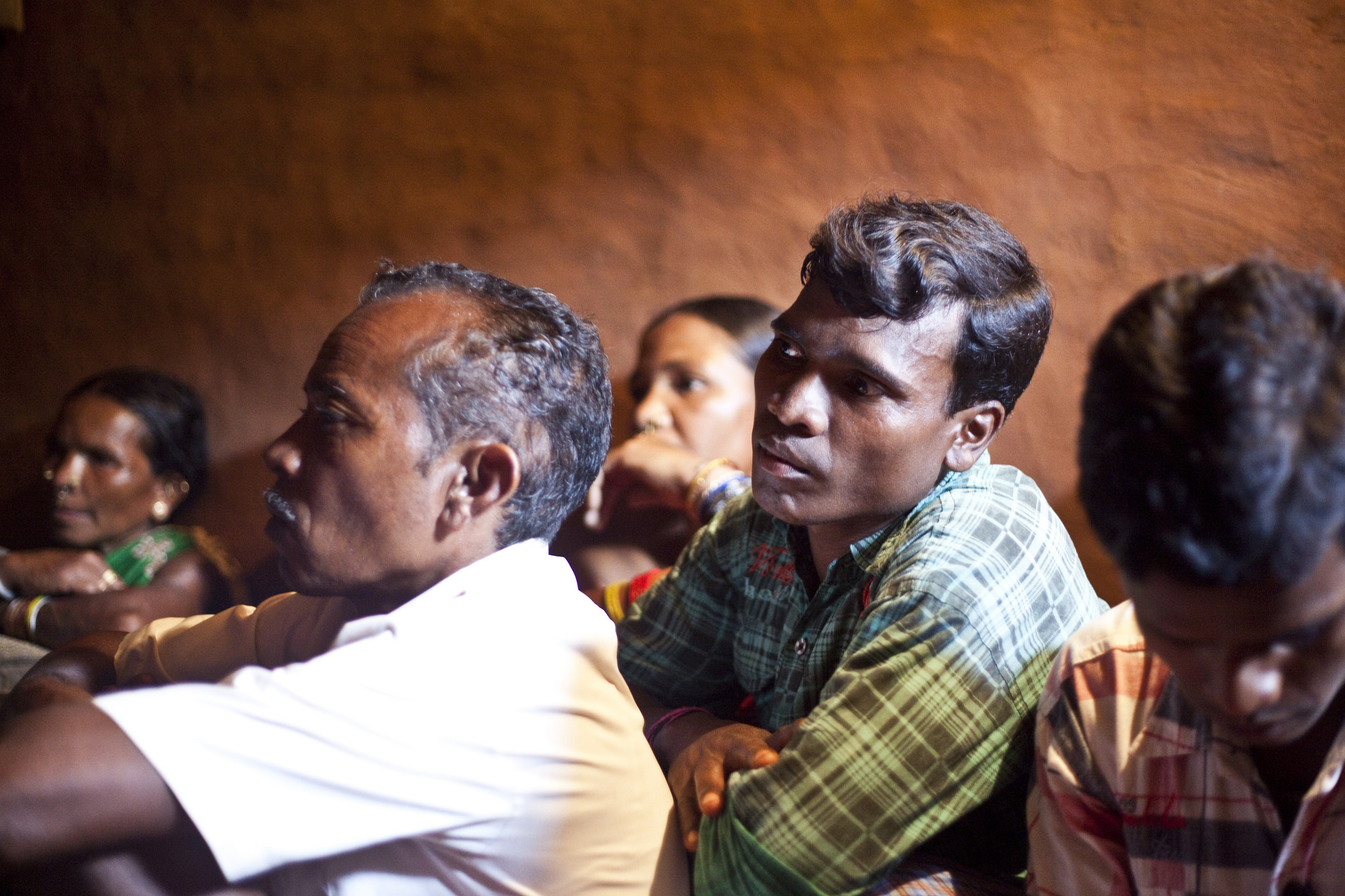Does an Alcohol Ban Work? A Cancer Specialist Talks About the Effect of Such Bans on Women
Dr. Vishal Rao, an oncologist and head and neck surgeon at the Bangalore-based HealthCare Global (HCG) Cancer Center, writes about the harmful effects of alcohol beyond personal health.

Dr. Vishal Rao, an oncologist and head and neck surgeon at the Bangalore-based HealthCare Global (HCG) Cancer Center, writes about the harmful effects of alcohol beyond personal health.
I was wondering if there is a way to look at liquor beyond the myopic view of health fringe so as to magnify the hidden ill effects of its consumption. Yes, liquor is certainly harmful, but not only to personal health. Surprisingly, bans laid out also do not fully work in many affected areas.
Someone asked Mother Theresa, “I’m a common man, how can I contribute to the world peace?” To this, she simply answered – “Just love your family, that is enough”. When family is in peace, society will be peaceful, when the society is in peace, cumulatively the world will be peaceful and it in all would lead the prosperity to reign.”
Karnataka has lately banned chewing tobacco and to have contrasting views on the reversal of the ban, the government had held a meeting. As a member of a high power committee for tobacco control in the government, I had put down a compelling argument for it. Post my say, a senior legislator asked us certain questions – “Does the ban work? Would it lead to improved health outcomes?”
These queries have been doing the rounds for a while now, and to answer it partially, let us assume the health issues from alcohol consumption to be trivial. Keeping the health sector at bay, can we map out the other sectors affected?
After broadening our thinking horizon with curiosity, it was interesting to know that during a survey in one of the villages that banned alcohol, women in villages had opened bank accounts post the ban!

Picture for representation only. By McKay Savage from London, UK [CC BY 2.0], via Wikimedia Commons
This turned out to be one of the most important, yet unnoticed, impacts of the ban, which is quite parallel to health benefits attained from it. In other words, the impact of prohibition of alcohol had a directly positive effect on the economic health of women in that village, which in turn helped better the upbringing of the family.
Also read: I Don’t Smoke or Drink, I Eat Well & Exercise. How Did I Still Get Cancer? An Oncologist Answers.
To sum up different sectored improvements apart from health and finance, we see these developments in families:
Elevate their social status
Provide them with dignity
Integrate their family and social life
Aid in providing children education
Improve children’s outlook of their parent’s relationships
Strengthen their value systems.
Should this not be a reason compelling enough to take a serious look at liquor?
In fact, stories from Sathya Sai Rural Seva Program where I volunteered, reflects similar emotions. We had visited houses in villages of Bovipallya, Madapanahalli and Tarabhahalli and witnessed a disturbing reality of the women.
They talked about how men in their families would stand in a queue at waking hours outside a local liquor store or how one family’s man was found lying on the road after a couple of quarters.

After looking into the biggest doubt of how the men could afford so much of alcohol intake, We found out that women of the family would eventually relinquish their ornaments and jewellery, sometimes family land to quench the thirst of the men. Meaningful engagement of seva volunteers with families revealed just the tip of iceberg. The destruction caused by the addiction was a tsunami of liquor blended with the tears of women and children.
A closer look at the injustice further reveals the devastating impact of alcohol on their social lives. Stories spanning from drunken father raping his own daughter, domestic violence, child labour, snatching away the savings of women for their children’s education to liability of an addicted man to the family is beyond repair.
Statistics on the impact of liquor ban from government data may not serve the bench mark, owing to many complexities. Moreover, stories of domestic violence, sometimes rape and other atrocities against women in rural areas and slums rarely gets to the police records. Most of these realities remain subdued within the four walls of their homes.
In India, it is the elite who dismiss this prohibition because their individual rights are being threatened.

Picture for representation only. Source: Flickr
Experts have repeatedly pointed out that a pattern of economic control, sexual violence, and intimidation are part of ongoing abuse have little connection to the alcohol dependence. Another added criticism from many was a huge effect on their small business of liquor, which would leave them in a lurch.
Prohibition lessons from the past from Andhra Pradesh, Haryana and Mizoram elude to the failed concept of achieving the desired result from it, many say. Factually, most of these states only sustained the ban for a few years and then repealed them. The enforcement mechanisms during the tenure of the ban coupled with an awareness program were unplanned and hardly executed.
To undermine these efforts further, the luring possibility of cheap electricity and feeding the poor using alcohol revenues were added incentives for political circles. Beyond what meets the eye, influence of the liquor lobby on the political parties and election funding may have been a stronger incentive to consider than the welfare of society at large. In fact, in paradox, many governments argue for the need of alcohol revenues to operate citizen-focused welfare schemes! Apparently this states that in order to provide rice at Rs 3 for BPL families, liquor would snatch Rs 100 daily from every family along with their peace, dignity, social status and education. (Purchase power parity of this average Indian is less than $2 a day)
Would it not be wise for the government to work towards the welfare of the society instead?

Picture for representation only. Source: Flickr
Awareness generation and sensitization programs are good means of control, but can be powerless in front of powerful addictions. They are often used as excuses to shirk away more effective, tougher decisions or to cover up inefficient intrinsic system weaknesses in government (corruption, lack of man power or process, poor enforcement) and sometimes conflicts of interest. Awareness and sensitization when clubbed with effective enforcement and strong policy decisions would pave an ideal way for dynamic, effective drive for a social and behavioral change in such scenarios.
Lastly, prohibition is not eradication but the highest form of control. Take for instance the very similar issue of drugs. Currently in a class of 100 we have 1-2 students addicted to drugs (lets assume Ganja). Imagine, if we were to legalize the banned drugs, how many would fall prey to its addictions. If we were to extrapolate the data of tobacco, it may rise up to 30 students in same class. Thanks to the strong ban on drugs, this isn’t our present scenario. Though with illicit sale, illegal bootlegging and smuggling is still prevalent, which means control measures are not at its optimal. Yet, increasing accessibility and promoting such substances actively would only stand to worsen the existing scenario to alarming levels.
Stories of families that have recovered from the alcohol wrath in these villages and slums are a sheer witness to joy, and call for a soulful hearing.

Picture for representation only. Source: Flickr
When we hear that Jeevika or Stri Shakti groups in many villages were dismantled owing to transformations in lives of men, has it not achieved a goal beyond health? I wonder.
No statistic can replace the evidence observed in the joy of a family that shares a balance of dignity, peace and health. Education and skill development, coupled with strong control measures, holds the key to a brighter future of rural India.
I have heard – the greatest gift a father can give to his child is to love his child’s mother and respect her!
(Written by Dr. Vishal Rao)
For more information, you can contact Dr. Rao at [email protected]
The author is neither a moralist nor an expert, these are his reflections from observations.
Like this story? Or have something to share? Write to us: [email protected], or connect with us on Facebook and Twitter.
NEW: Click here to get positive news on WhatsApp!

Similar Story

Sudha Murthy: How a Small Town Girl Shattered the Glass Ceiling With Her Self-Belief
As an engineer, Sudha Murthy wrote a letter to JRD Tata that changed TELCO’s employment policy. Little did she know then that she would make history, and become an icon for millions of Indians.
Read more >
If you found our stories insightful, informative, or even just enjoyable, we invite you to consider making a voluntary payment to support the work we do at The Better India. Your contribution helps us continue producing quality content that educates, inspires, and drives positive change.
Choose one of the payment options below for your contribution-
By paying for the stories you value, you directly contribute to sustaining our efforts focused on making a difference in the world. Together, let's ensure that impactful stories continue to be told and shared, enriching lives and communities alike.
Thank you for your support. Here are some frequently asked questions you might find helpful to know why you are contributing?


This story made me
-
97
-
121
-
89
-
167












